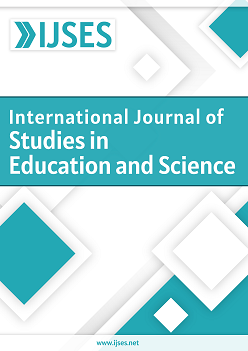Emotion in Informal Learning as Mediated Action: Cultural, Interpersonal and Personal Lenses
DOI:
https://doi.org/10.46328/ijses.50Keywords:
Emotion, Mediated action, Museum, Learning, Discourse analysisAbstract
Emotion and affect are important but undertheorized and under researched elements of learning in informal contexts such as science centers, museums, zoos, and aquariums. An interactional and discursive approach to emotions as mediated action was used to develop a three-part framework for documenting and exploring the place of emotional expression among family groups (n = 10 groups; 33 individuals) visiting an ocean exhibit in an interactive science museum in Rio de Janeiro, Brazil. Among our results, we observed that the most commonly expressed emotion was surprise, excitement, amusement and curiosity; the most frequently occurring categories of emotional expression among the families in interaction were those associated with being actively engaged in positive emotional interaction. Transcripts of interaction are presented to illustrate the framework and examined in light of emotional expression as a mediator of 1) active, collaborative, meaning making; 2) learner agency and protagonism; and 3) empathy. Results from the entire data set are interpreted using the Core Affect Model of Engagement. We present examples of and discuss how and why a mediated action approach to emotion as a social, distributed, interactional and discursive phenomena may be helpful both for advancing the study of emotion as an aspect of informal learning and exhibit design.References
Rowe, S., Massarani, L., Gonçalves, W., & Luz, R. (2023). Emotion in informal learning as mediated action: Cultural, interpersonal and personal lenses. International Journal of Studies in Education and Science (IJSES), 4(1), 73-99. https://doi.org/10.46328/ijses.50
Downloads
Published
Issue
Section
License
Articles may be used for research, teaching, and private study purposes. Authors alone are responsible for the contents of their articles. The journal owns the copyright of the articles. The publisher shall not be liable for any loss, actions, claims, proceedings, demand, or costs or damages whatsoever or howsoever caused arising directly or indirectly in connection with or arising out of the use of the research material.
The author(s) of a manuscript agree that if the manuscript is accepted for publication in the International Journal of Studies in Education and Science (IJSES), the published article will be copyrighted using a Creative Commons “Attribution 4.0 International” license. This license allows others to freely copy, distribute, and display the copyrighted work, and derivative works based upon it, under certain specified conditions.
Authors are responsible for obtaining written permission to include any images or artwork for which they do not hold copyright in their articles, or to adapt any such images or artwork for inclusion in their articles. The copyright holder must be made explicitly aware that the image(s) or artwork will be made freely available online as part of the article under a Creative Commons “Attribution 4.0 International” license.

This work is licensed under a Creative Commons Attribution-NonCommercial-ShareAlike 4.0 International License.





